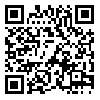Volume 7, Issue 4 (11-2014)
IJMEHM 2014, 7(4): 92-103 |
Back to browse issues page
Download citation:
BibTeX | RIS | EndNote | Medlars | ProCite | Reference Manager | RefWorks
Send citation to:



BibTeX | RIS | EndNote | Medlars | ProCite | Reference Manager | RefWorks
Send citation to:
Ebrahimi H, Sadeghian E, Seyedfatemi N, Mohammadi E. Challenges associated with patient autonomy in Iranian hospitals: a qualitative study. IJMEHM 2014; 7 (4) :92-103
URL: http://ijme.tums.ac.ir/article-1-5423-en.html
URL: http://ijme.tums.ac.ir/article-1-5423-en.html
1- Department of Psychiatric Nursing, Faculty of Nursing and Midwifery, Tabriz University of Medical Sciences, Tabriz, Iran;
2- Students Research Committee, Faculty of Nursing and Midwifery, Tabriz University of Medical Sciences, Tabriz, Iran;
3- Center for Nursing Research, Department of Psychiatric Nursing, Iran University of Medical Sciences, Tahran, Iran;
4- Department of Nursing,Tarbiat Modarres University, Tehran, Iran
2- Students Research Committee, Faculty of Nursing and Midwifery, Tabriz University of Medical Sciences, Tabriz, Iran;
3- Center for Nursing Research, Department of Psychiatric Nursing, Iran University of Medical Sciences, Tahran, Iran;
4- Department of Nursing,Tarbiat Modarres University, Tehran, Iran
Abstract: (9833 Views)
Patient autonomy is the opposite of paternalism and an essential element in individualised, patient-centred, ethical care. Challenges associated with patient autonomy are culture-related and have not been fully investigated in Iran so far. The aim of this study was to explore the challenges to the autonomy of patients in Iranian hospitals.This was a qualitative study using conventional content analysis methods. In 2013 13 patients, 7 nurses and 1 doctor were selected from three Tabriz and Hamadan teaching hospitals using purposive sampling to participate in semi-structured interviews. The interviews were subjected to qualitative content analysis and analysed using the MAXQD10 software.Fifteen categories and three themes were identified. The three main themes related to challenges associated with patient autonomy were: interpersonal factors, altered relationships, and organisational constraints. In summary, this study revealed some challenges associated with patient autonomy that the treatment team, managers and planners in the health care system should target in order to improve patient autonomy.
Type of Study: Research |
Subject:
Medical Ethics
Received: 2014/11/15 | Accepted: 2014/11/15 | Published: 2014/11/15
Received: 2014/11/15 | Accepted: 2014/11/15 | Published: 2014/11/15
Send email to the article author
| Rights and permissions | |
 |
This work is licensed under a Creative Commons Attribution-NonCommercial 4.0 International License. |





